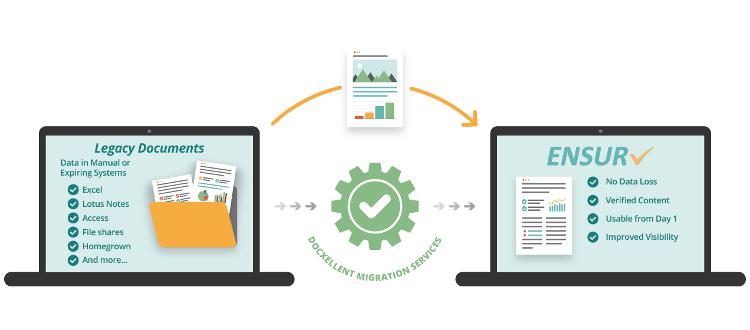
When you’re creating and distributing consumer goods, your team is maintaining high standards to prevent costly mistakes. If your small or medium-sized business (SMB) is using paper or simple digital document storage to create policies, procedures, approvals, and training logs, then you’re wasting time and money on manual processes and leaving the door open for human error. You can easily take control of business documents that require versioning, approvals, audit logs, or controlled access with the right software.
A document control system (DCS), also known as a document management system (DMS), can be a great entry point for small businesses. These software solutions give you a secure environment for managing documents. From ensuring the right people establish processes and approve documents to tracking every click and creating detailed reports, these software solutions can enhance your business operations. Your business may need a full quality management system (QMS) if you need to manage non-conformances, CAPA, deviations, complaints, or other quality documents. A common approach is to first implement a DCS to gain control over policies, procedures, and document training. Then, a logical next step is to expand and add QMS functionality, which is often included by standard or as an expansion to a DCS.
Choosing the right document control software can feel daunting. After all, this will be your secret weapon for efficiency, productivity, and improved customer satisfaction. It needs to be customizable, secure, and enhance productivity. This blog will guide you through the essential questions to ask when evaluating potential DCS or QMS software vendors to help you understand which system will fit your business right now.
Will using this software expose my business and customer data?
The answer must be “no.” Reliable DCS and QMS software solutions should have robust security measures in place to protect sensitive information. Failure to protect data can lead to the loss of customer trust, legal repercussions, and financial penalties. Look for a partner that prioritizes data security and meets industry standards, including features like data encryption, secure user authentication, and regular security updates. Validated industries should lean towards a QMS vendor for extra security protections.
Will data be stored on-premise or on the cloud?
Another key component to consider is where data will live. It can be stored on the cloud (an offering commonly referred to as SaaS) or on-premise. Cloud-based systems are more accessible and scalable. On-premises systems offer more internal control but can require upfront costs and regular maintenance.
Will this software make it easy for leaders to manage tasks?
A good DCS or QMS software boosts productivity by streamlining workflows and reducing manual processes. Both systems can make it easy to identify and eliminate inefficiencies and risks so leaders can eliminate these issues and improve overall operations. When evaluating software for your business, it’s important to examine if it can automate workflows, provide visibility into incomplete tasks, and make task management intuitive. The solution you select should most of all be user-friendly so that it is easy for your team to learn and implement. If your industry requires robust quality documentation, a QMS will be the best solution. Otherwise, your small business will be able to find a DCS that makes it easy for leaders to manage tasks such as training and document approvals.
What types of customizable features will my team be able to modify for our specific business needs?
Every business is unique, and the QMS or DCS solution you onboard should be able to adapt to your needs. You should be able to tailor the software to your immediate needs. Look for a solution that can grow with your business that allows you to add users and change features.
Customize Your Experience
How will my team be supported during the implementation?
With small teams, busy leadership, and few IT resources, most SMBs need assistance in the implementation process when purchasing a new software tool. Standardizing processes will bring improved efficiency, but they also require proper set up to be effective. Your support team should focus on reducing downtime and minimizing disruptions. A vendor that supports your team directly during implementation is key for success. Ask your potential vendors if they will not only help with the initial implementation but also work with you on identifying issues once a system is live. A great QMS or DCS will continue to improve over time, and your team may find new functionality is needed. A good partner will help you implement suggestions and refine the system to grow and adapt with your organization.
Make the transition to a document system you can trust
Help your small business keep up with larger competitors by creating a structure that makes it easy for your employees to follow procedures effectively. Choosing the right QMS or DCS is a critical decision for any SMB. By asking questions about security, data privacy, customization, and support, you can find a system that meets your business goals.
At DocXellent, we know that you need a system that will meet your business goals today and grow with your business as you scale. That’s why we offer ENSUR Lite (a DCS) and ENSUR (a comprehensive DCS and QMS) solutions for SMBs. Both solutions offer security features, customization options, and a knowledgeable support team.






























